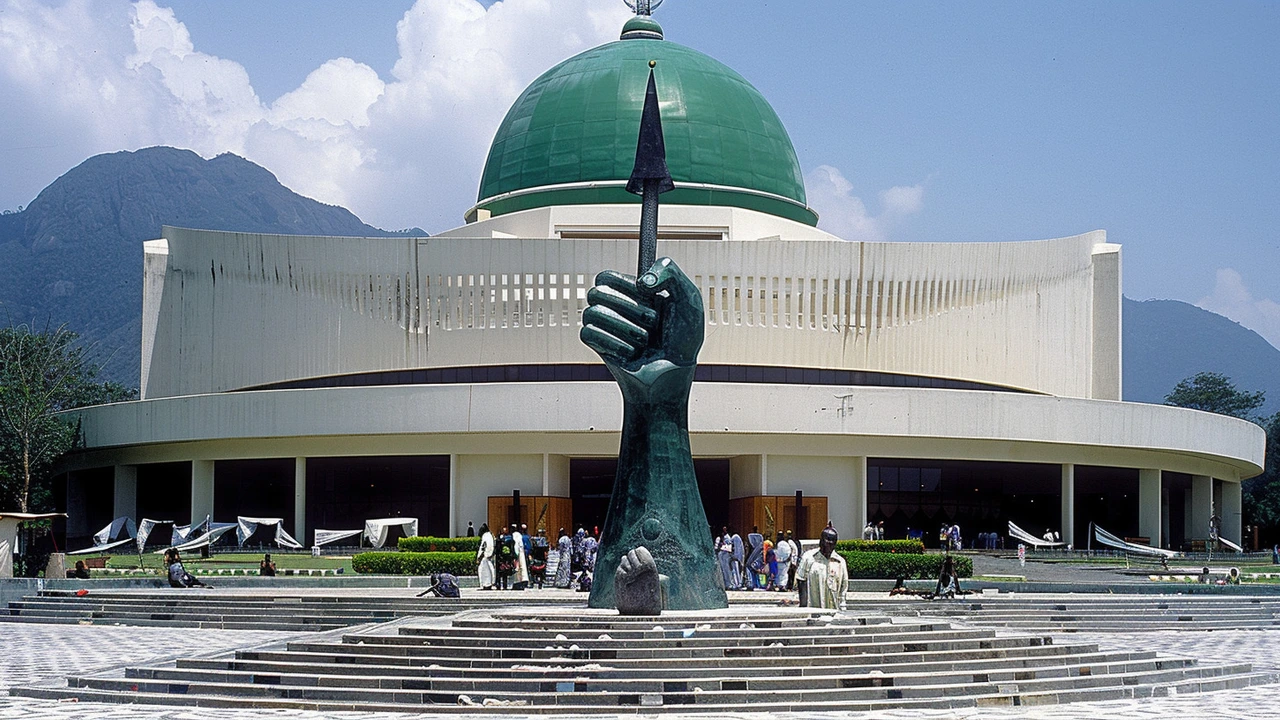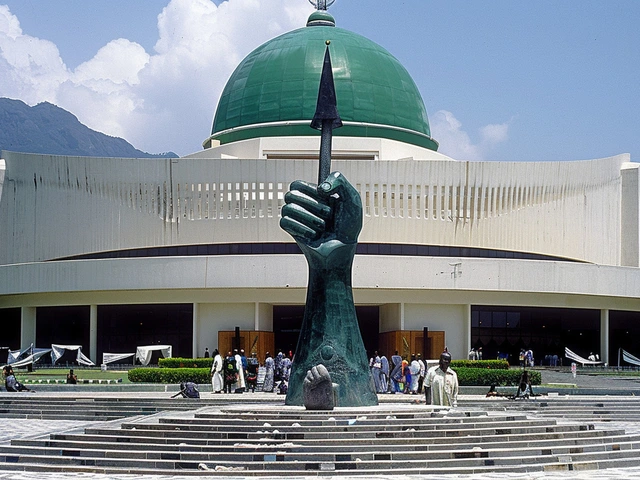Nigerian National Assembly Dismisses Rumored Bill on Regional Government System
Nigerian National Assembly Dismisses Rumors of Bill Advocating for Regional Government System
The Nigerian National Assembly has categorically refuted claims regarding the existence of a bill that seeks to transition the country back to a regional system of government. On Friday, multiple newspapers reported on the supposed bill, causing a considerable stir among citizens and on social media platforms. The controversial draft bill, purportedly titled 'A Bill for an Act to Substitute the Annexure to Decree 24 of 1999 with a New Governance Model for the Federal Republic of Nigeria', was said to be poised for passage into law before October 1, 2024. However, the legislative body's spokespeople quickly moved to dispel these rumors.
Yemi Adaramodu, the Senate spokesperson, and Akin Rotimi, the House of Representatives spokesperson, both denied the existence of such a bill. They stressed that no such proposal was under consideration by the National Assembly. Adaramodu was clear in his dismissal, calling the reports 'false' and asserting that there is no intention to revert Nigeria to its former regional system of governance. Rotimi echoed these sentiments, reinforcing that the legislative agenda did not include the discussed bill.
A History of Governance in Nigeria
In the wake of Nigeria's independence in 1960, the country adopted a regional system of governance, dividing the nation into multiple regions with considerable self-autonomy. This system lasted until 1979, when the country transitioned to a presidential system following years of military rule. The shift marked a significant change in Nigeria's political landscape, centralizing authority and restructuring how governance was implemented across the nation.
The regional system offered a decentralized approach, allowing regional governments a degree of self-management while still being part of the larger federal structure. This mode of governance had its own set of advantages and challenges. While it catered to regional diversities and allowed local governance to be more in tune with the needs of their communities, it also encountered issues like regional rivalries and uneven development.
The Appeal and Concerns of Regional Governance
The prospect of returning to a regional system finds supporters and detractors within Nigeria's diverse populace. Proponents argue that such a system could address current political challenges by allowing regions to manage their resources more effectively and tailor policies to local needs. This could potentially foster more balanced development and reduce the sense of marginalization felt by certain areas.
However, the concerns associated with such a shift are equally compelling. Critics warn that reverting to the regional system might reignite old regional rivalries and entrench disparities between different parts of the country. Additionally, questions about the practicality and logistics of such a systemic overhaul remain prevalent. Moving away from Nigeria's established presidential system could lead to political instability and unintended economic consequences.
Social Media and the Spread of Misinformation
The bill in question gained traction through various social media platforms before making its way into mainstream news. This phenomenon highlights the significant role social media plays in disseminating information, and unfortunately, misinformation. The fact that a non-existent bill could generate such widespread discussion emphasizes the need for due diligence and verification in our rapidly evolving information landscape.
Both Adaramodu and Rotimi underscored the importance of accurate reporting and urged the public to seek confirmation from credible sources before accepting such information as fact. They pointed out the potential damage misinformation could inflict on the country's political stability and public trust in governmental institutions.
The Current Legislative Focus
At present, the legislative agenda in the National Assembly involves several pressing issues that do not include the rumored regional governance bill. Topics such as economic reforms, national security, healthcare, and educational improvements dominate the current discourse. Lawmakers are primarily focused on addressing these pressing matters, aligning with the nation's immediate needs and broader developmental goals.
Efforts to clarify the National Assembly's agenda signal a commitment to transparency and accountability. Both Adaramodu and Rotimi reiterated the body's dedication to working towards the betterment of Nigeria through existing governance structures. The focus remains on strengthening the presidential system rather than reverting back to past governance frameworks.
A Call for Civic Engagement
In light of the rumors, civic engagement emerges as a crucial aspect in the democratic process. Citizens are encouraged to actively participate in political discourse, stay informed about legislative developments, and hold representatives accountable. This engagement ensures that the collective voice is heard and that governance remains attuned to the populace's needs.
The National Assembly’s refutations serve as a reminder of the power of active and informed citizenry. It's vital for the public to engage with verified information and contribute constructively to political discussions. This participation is central to nurturing a robust democracy and fostering a well-informed society.
The Road Ahead
As Nigeria progresses, the conversation around governance and political structure will continue to evolve. While the idea of regional governance has its advocates, the current focus remains on enhancing the efficiency and effectiveness of the presidential system. Discussions surrounding governance models are essential as they reflect the dynamic nature of political development and the ongoing pursuit of a system that best serves the nation's interests.
For now, the National Assembly has put to rest the rumors of a bill seeking to return Nigeria to a regional government system. The legislative body remains committed to addressing the country’s most pressing issues within the framework of the established presidential system. Future debates and discussions will undoubtedly shape the political landscape, but they must be anchored in truth and credible information.







